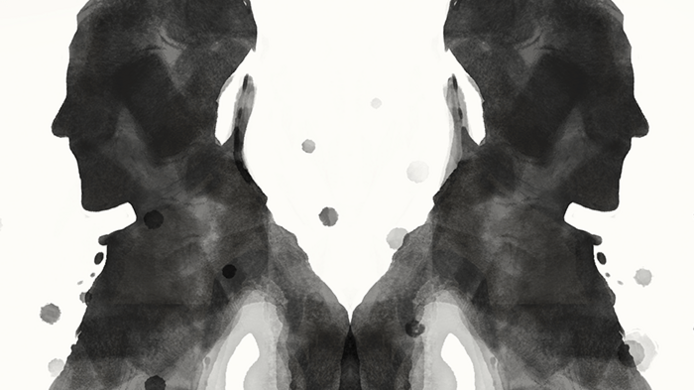Explore our resources for psychology, counseling, and social work degrees and learn about career options that fit your future.

As you search for a rewarding and people-centric career, rest easy knowing there are many humanistic professions you could pursue. If your career goals involve helping others overcome their challenges, it’s natural to be curious about social worker versus psychologist roles.
Both social workers and psychologists are trained to tune in to a person’s cognitive, social, and emotional behaviors. They aim to provide guidance, strategies, and resources to help individuals cope with the difficulties they face.
While these roles share a common objective of aiding people in leading fulfilling lives, they approach this goeal differently. Understanding these distinctions can help you decide which role is right for you. We dug into the data to outline these two impactful career paths below. You just might find you’re a natural fit for one over the other.
Understanding Social Worker vs Psychology Roles
There are numerous subfields within social work and psychology. Practitioners in either field can specialize in working with children, students, marriage and families, mental health, or substance abuse, to name a few. With this wide range of services, each professional’s job description may vary, though there are core elements specific to both of these roles.
The Role of a Social Worker
Social workers are essentially the advocates of society. They are committed to enhancing the well-being of individuals and communities, particularly those who are marginalized, oppressed, or living in poverty. It is a multifaceted profession that tackles a variety of societal issues like substance misuse, child welfare, access to health services, elder care, and more.
Common social worker duties include the following:
- Assessing a client’s needs, situations, and strengths to determine their goals
- Helping clients adjust to major life changes, such as illness, divorce, or the death of a loved one
- Researching, referring, and advocating for community resources on a client-by-client basis
- Responding to crisis situations, such as mental health emergencies or child/elder abuse
- Identifying people or communities in need of help
- Following up with clients to ensure improvements are made
The Role of a Psychologist
Dr. Isa Ribadu, licensed Marriage and Family Therapist and Associate Dean/Program Director in the School of Arts & Sciences at UMass Global, states, “Psychology opens the pathway to understanding.” Psychologists use their comprehensive understanding of cognitive, emotional, and social processes to understand and explain complicated thoughts, feelings, and actions. Some psychologists even venture into research, studying behavior and brain function. Additionally, rather than working with families or community groups, psychologists typically work with clients in a one-on-one capacity.
Common psychologist job duties include:
- Conducting scientific studies of behavior and brain function
- Identifying psychological, emotional, or behavioral issues and diagnosing disorders
- Identifying and testing for patterns that can help them better understand and predict behavior
- Discussing treatment plans with clients and other medical professionals
- Writing articles, research papers, and reports to share findings with others
Psychologist vs Social Worker Clinical Settings
Social workers and psychologists, two distinct professions within the broad field of human services, operate in a variety of diverse and multifaceted settings. Social workers, for instance, frequently secure employment in a range of areas such as human services agencies, educational institutions like schools, correctional institutions like prisons, and healthcare facilities like hospitals.
Psychologists, while they may also work in similar environments such as hospitals, correctional facilities, and schools, have the additional option of establishing their own private practices, offering a more personalized approach to mental health care.
Social Worker vs Psychologist Salary and Career Outlook
You may plan to pursue a particular career based solely on your passion for the subject, but you will probably still want some assurance that there will be jobs available once you finish school. In the case of social work and psychology, both are solid career paths with ample opportunities.
Career Outlook
According to the U.S. Bureau of Labor Statistics (BLS), overall employment of social workers is expected to increase 7 percent by 2032. Mental health and substance abuse social work roles are projected to rise substantially in that time frame, with a growth rate of 11 percent. There is also a stable job market for psychologists. Overall employment of psychologists is projected to grow 6 percent by 2032, with similar rates for clinical, counseling, and school psychologist specialties.
Some experts hypothesize demand for psychology services will increase particularly for two groups: aging populations and those within schools. As the population ages, additional services can help people deal with the mental and physical changes that occur as they grow older. And as more people become aware of the connection between mental health and learning, school psychologists’ expertise will be in high demand. Many school districts are adding wellness centers staffed by psychologists and counselors to respond to the surge of student anxiety and depression exacerbated by the pandemic.
Salary
The average salary of an LCSW in January 2024 is $79,900 and the average salary of a psychologist is $114,879. While the salary for psychologists is generally higher, it's important to note that this comes with a longer educational journey and more rigorous licensure requirements. On the other hand, social workers may start practicing sooner with fewer educational requirements, but they typically earn less.
How to Become a Psychologist vs Social Worker
Although these two career paths share similarities, the educational requirements and necessary licensure for each differ significantly. Recognizing the duration of education needed for these roles is crucial as it can affect your planned timeline. While there are multiple education tracks that could lead you to careers in psychology and social work, the following are the most common.
Psychology Degrees
Most psychologist positions require a doctoral degree in psychology, but there are some roles where a master’s degree is sufficient like school counseling, marriage and family therapy, professional clinical counseling, and educational psychology. For example, a Master of Arts in Marriage and Family Therapy, can qualify graduates who obtain proper licensure to work as marriage and family therapists.
For positions that require further education, you have the option of pursuing a Doctor of Philosophy (Ph.D.) in psychology or a Doctor of Psychology (Psy.D.) degree. Ph.D. psychology programs are research-intensive and culminate in taking a comprehensive exam and writing a detailed dissertation. The Psy.D. is a clinical degree often based on practical work and examinations rather than a dissertation. Many doctoral psychology programs also include a one-year internship.
Social Work Degrees
The most common requirement for entry-level social work positions is a Bachelor of Social Work (BSW), however, this can vary by state with some still requiring a Master of Social Work (MSW). A BSW prepares students for direct-service positions, such as case worker or mental health assistant.
Clinical social work positions require an MSW. MSW programs typically prepares students to work in their chosen specialty and requires students to complete a supervised practicum or internship. You’ll also need two years of supervised training and experience.
Licensure
Obtaining licensure remains a crucial element in both of these fields if you would like to work in clinical settings. Upon the completion of your degree program and two years of training, if you would like to become a licensed clinical social worker (LCSW), you will need to pass the Association of Social Work Board (ASWB) exam.
After earning a master’s degree in marriage and family therapy, professional clinical counseling, or school psychology, you must acquire a license to practice. The licensing process differs from state to state, but generally involves completing a set number of supervised hours, passing a state-specific exam, and upholding ethical standards. For instance, in California, marriage and family therapists are required to complete 3,000 hours of supervised experience over a minimum period of 104 weeks prior to licensure. Similarly, school psychologists need to finish 60 semester hours of a practicum within an educational environment.
Choosing Between a Career in Psychology vs Social Work
While there are concrete differences between a career in psychology versus social work, it’s also important to consider your personality and the skills needed to be successful in each role.
Social workers need to be empathetic, patient, and have excellent problem-solving skills. They also need strong communication skills to interact effectively with clients and other professionals. A career in social work might not be a fit for you if you are uncomfortable with high-stress situations or find it difficult to manage your emotions. The nature of social work often involves dealing with crises and emotionally charged situations. Additionally, if you prefer working independently or are not particularly social and/or empathetic, this career may not be the best fit.
Psychologists, on the other hand, require analytical skills to interpret patient data and research findings. They also need to be observant and have exceptional problem-solving skills to assess patients' problems and devise appropriate treatment plans. A career in psychology may not be the right fit for you if you lack patience and find it challenging to maintain a neutral perspective when dealing with complex emotional issues. Psychologists often deal with deep-seated mental health issues, which require a high level of emotional resilience.
Is Your Future in Social Work or Psychology?
This social worker versus psychologist comparison should have you one step closer to determining where you can make your impact. Whichever of these rewarding professions you choose, you’ll likely need to further your education to make the career your own.
If you find yourself drawn toward social work or psychology, check out the undergraduate and graduate degrees at UMass Global’s School of Arts & Sciences for online programs that fit your schedule, budget, and career ambitions.
Our degree offerings in these fields include:
- BA in Social Work
- MSW in Social Work
- DSW in Social Work
- BA in Psychology
- BA in Child Psychology
- BA in Psychology, Industrial/Organizational
- BA in Psychology, Prep for Advanced Study Counseling
- BA in Psychology, Prep for Advanced Study in Psychology
- MA in Marriage and Family Therapy
- MA in Professional Clinical Counseling
- MA in Marriage & Family Therapy and Professional Clinical Counseling








